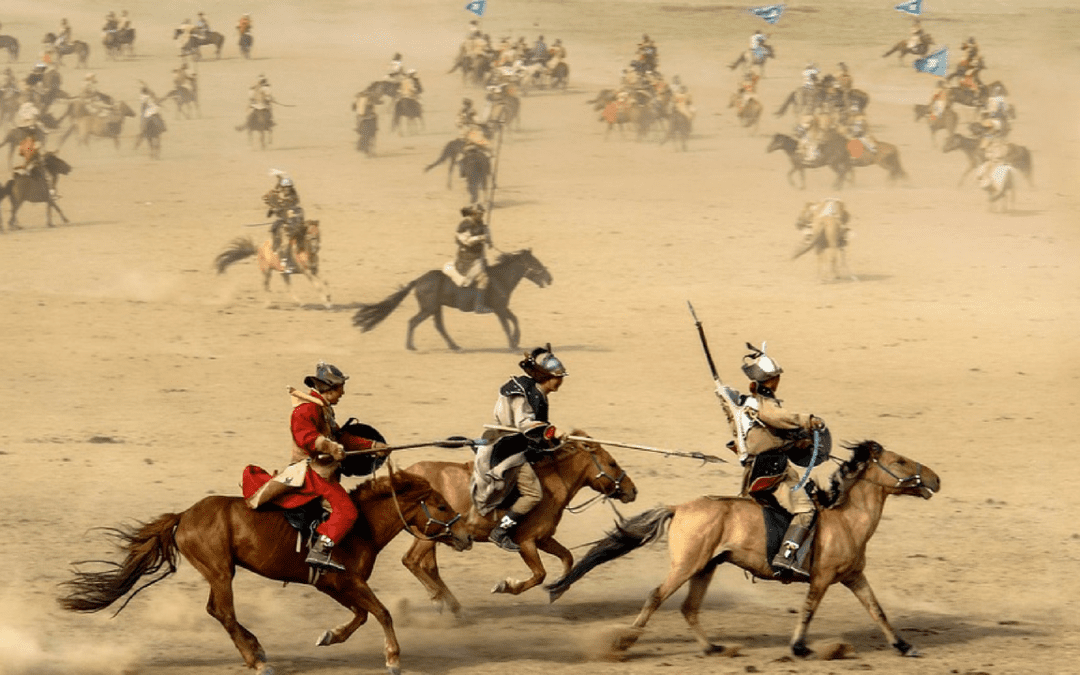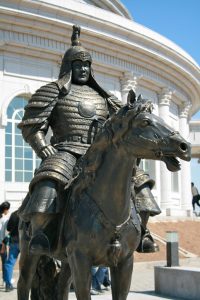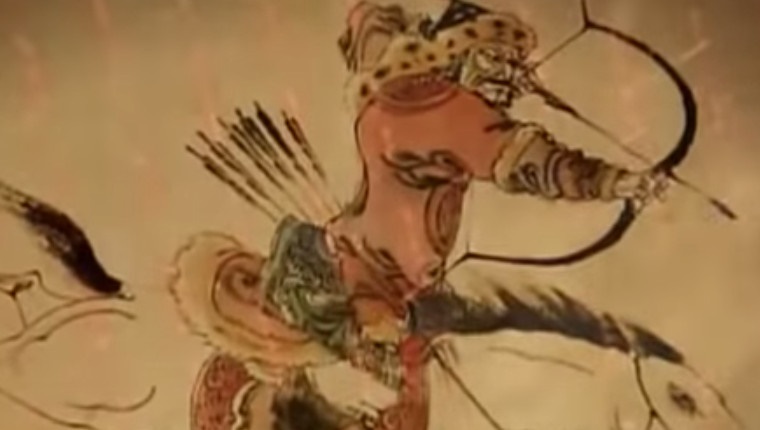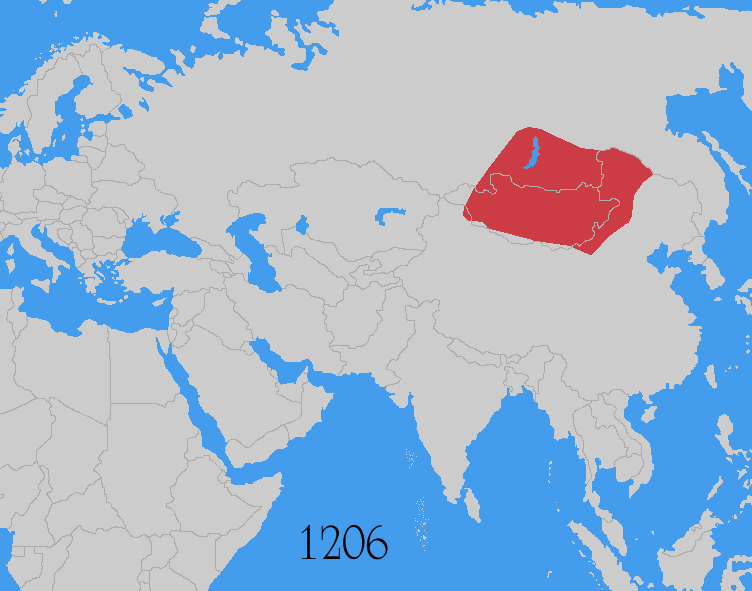In the beginning, the Mongols were simply disorganized tribes of brilliant horse archers, but under Genghis Khan they became the greatest fighting force the medieval world had ever seen. They built the largest contiguous empire in the history, and nobody was more feared than them. The Mongols won countless battles, often against much larger armies. Their conquests and invasions are part of the reason they were so feared. This is a list of 10 reasons why the Mongols were so feared.
Unparalleled Skill On Horseback
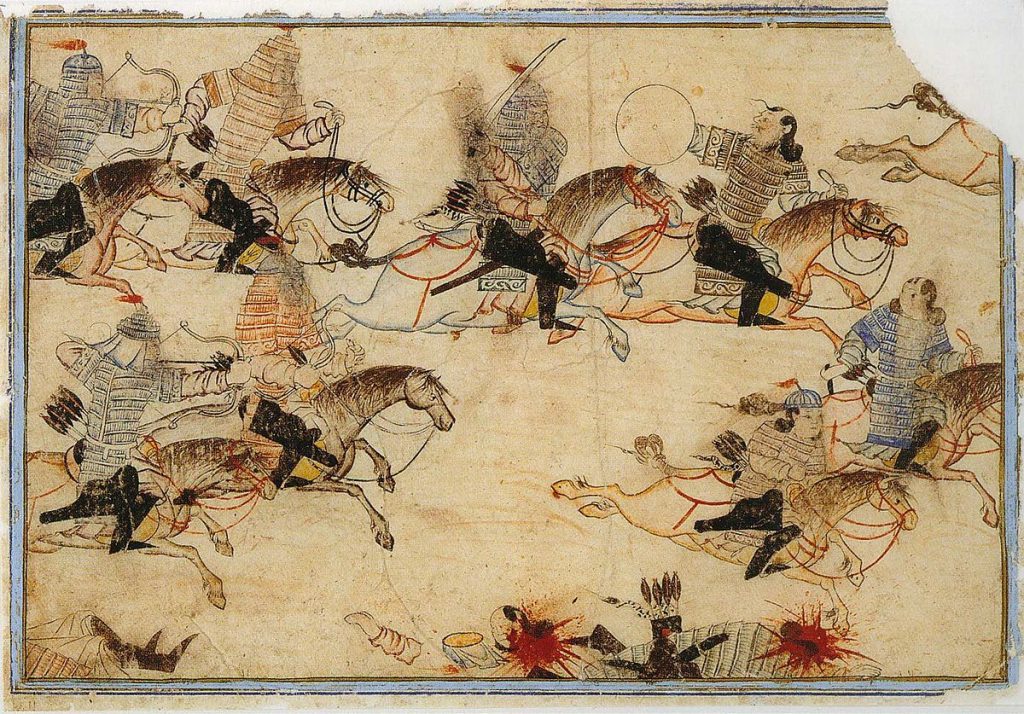
The Mongols had truly unparalleled skill on horseback, they used their bows in perfect harmony with the movement of the small horses they rode. While riding in the midst of battle, a Mongol would time his shot so that he fired when the trotting horse’s hoofs had left the ground completely, so that the horse was level in the air when he shot. Mongols would do this consistently throughout the battle. Skills like these were only attainable because the Mongols would train archery and horse riding as soon as it was physically possible. The Mongols rode horses so small they only needed to eat grass to survive, which is beneficial for long journeys. There’s never been a superior cavalry force in history.
Battle Of Legnica
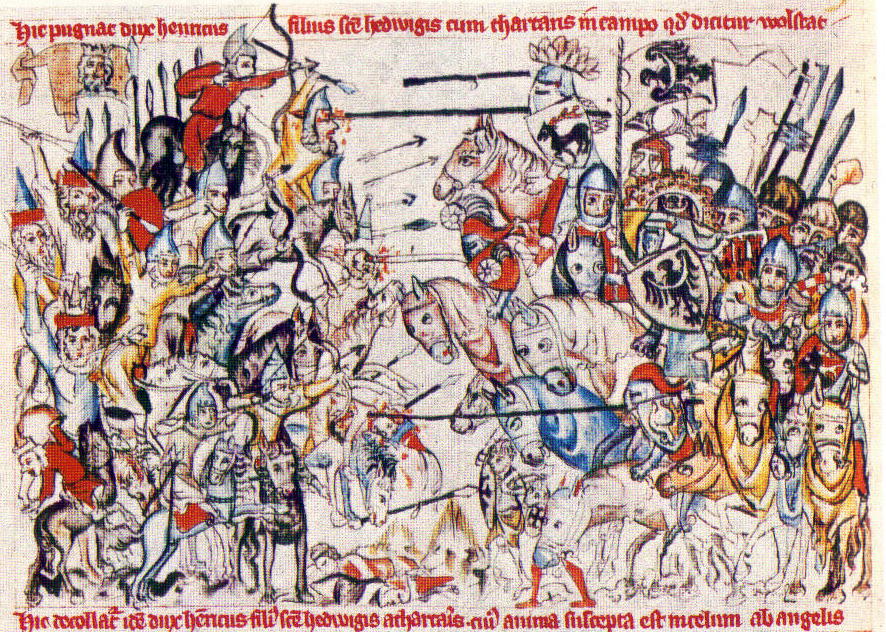
Winning a great battle can inspire your men to follow you to the end, and terrify your enemies. A single battle can be the turning point in a war, partly due to this psychological warfare. In the Batlle of Legnica the Mongolians are estimated to have been fighting a force twice its size with a variety of soldiers, including the famed Knights Templar. A European coalition formed to try and stop the Mongols from entering Europe. The safety of Europe depended on this battle. Partway through the battle the Mongolian forces and began to retreat, and Polish forces charged in, reserves were also sent in to capitalise on this opportunity. Little did they know, they had fallen for one of Genghis Khan’s most famous tactics, the feigned retreat. The Mongols used feigned retreats to separate the knights from the European infantry, and fight them separately.
Battle Of The Kalka River
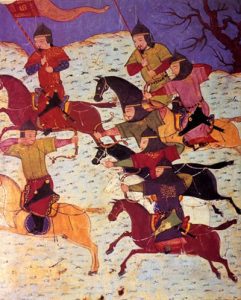
Subutai led an army of 20,000 Mongols against a Russian army 4 times its size. The Mongol rear guard was defeated early in the battle, and so the rest of the horde was forced to retreat. Mstislav the Bold chased down the retreating Mongols with victory in his eyes. His army spread out as they attempted to catch them, a chase which lasted many days. Mstislav spotted Mongols in formation along the Kalka River, and attacked without waiting for reinforcements. With his army in disarray, Mstislav was forced to retreat back to a fortified camp. He had fallen for a feigned retreat. Mstislave surrendered to Subutai with the agreement that neither he, nor any of his men would be harmed. They were all slaughtered upon leaving the camp. Luckily, Mstislav managed to escape. Mstislav the Bold, boldly ran away.

Conquest of Central Asia
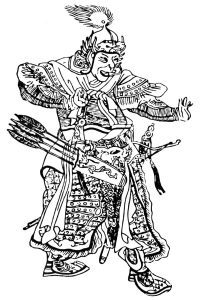
The Mongols became a considerable force after unifying Central Asia, which is where they originated. They went to war with anyone who wouldn’t surrender to them. During this time they defeated the Qara Khitai, and the Kwarazmian Dynasty. Even though they only had around a 5th of the enemy forces, the Mongolians were much better organized. Most of the main forces in the region submitted to Genghis, recognising they had little chance of victory and would probably be better off working under him.
Brilliant Leadership From Subutai And Genghis Khan
One of the most amazing things about the Mongols is that they had such exceptional leadership, even though they didn’t have much in the way of formal education. The tactics and strategies employed by Genghis Khan and his greatest general, Subutai, were revolutionary, and at the time almost unstoppable. Genghis created a meritocracy where the strongest and most talented rose to the top, and managed to unify the fighting Mongol tribes under his rule. Subutai was able to simultaneously control two large armies, hundreds of miles away from each other. Subutai won sixty five pitched battles, and masterminded over 20 campaigns.
Battle of Mohi
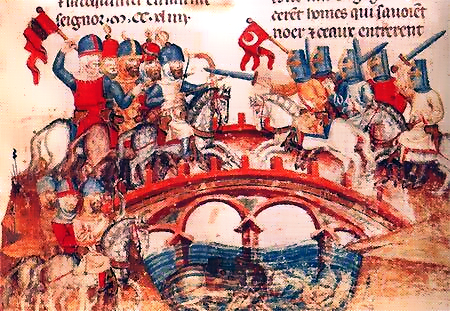
This was one of the most devastating battles in European history. 25% of Hungary’s population was wiped out by after the Mongol incursions. Half of all liveable places had crumbled, smashed to bits by hordes of Mongols. Losses were heavy on both sides, but the Europeans suffered most. This was the most major battle of the war between Hungary and the Mongolians. What followed was a tidal wave of death and destruction, as Mongol hordes rampaged through Hungary destroying cities as they went. Bela IV, the King of Hungary, actually had to run to his archenemy, Duke Frederick, for safety. Frederick extorted him for as much as possible, including three of his countries.
Conquest of West Asia And East Asia
During their invasions of West Asia, Mongols attacked Iran, Iraq, Syria, the Caucasus and parts of Turkey, all of which submitted to them. They stormed Baghdad with 150,000 troops, and took what had been the centre of Islamic power for 500 years. What’s most interesting about their conquest of West Asia, is that it’s the first time their conquest was actually stopped. The Indian Mamluks halted the Mongol advance at the Battle of Ain Jalut. China had to defend against countless Mongol invasions. Genghis Khan relentlessly attacked China, over a period of many years. They destroyed the Western Xia in 1227, the Jin Dynasty in 1234, turned the Kingdom of Dali into a vassal state in 1253, and defeated the Song in 1279. When done with China, they subjugated Korea, and then invaded Japan. There’s no denying they were excellent when fighting on land, but they didn’t fare well against this island nation. The Mongols lost almost every battle against the Japanese, and their armies were crippled by two colossal typhoons. They lost decisively against the Japanese. This invasion is what inspired the concept of Kamikaze “divine wind”.
Further Conquests
Incursions into Southeast Asia were largely successful, most factions agreed to pay tribute, and only the Invasions into Vietnam and Java failed. Europe was devastated by the Mongols. They destroyed near enough every major Russian city, and invaded Volga Bulgaria, Bulgaria, Poland, and Hungary. If rumours spread that the Mongols were coming, then it would cause a mass panic, and some would run to safety. There was no guaranteed way to defeat the Mongol hordes, they continuously defeated much larger armies, so numerical strength couldn’t protect you. Mongol conquests would leave once populous and flourishing areas as wastelands, with little to no people, those remaining would be slaves.
Barbaric Nature
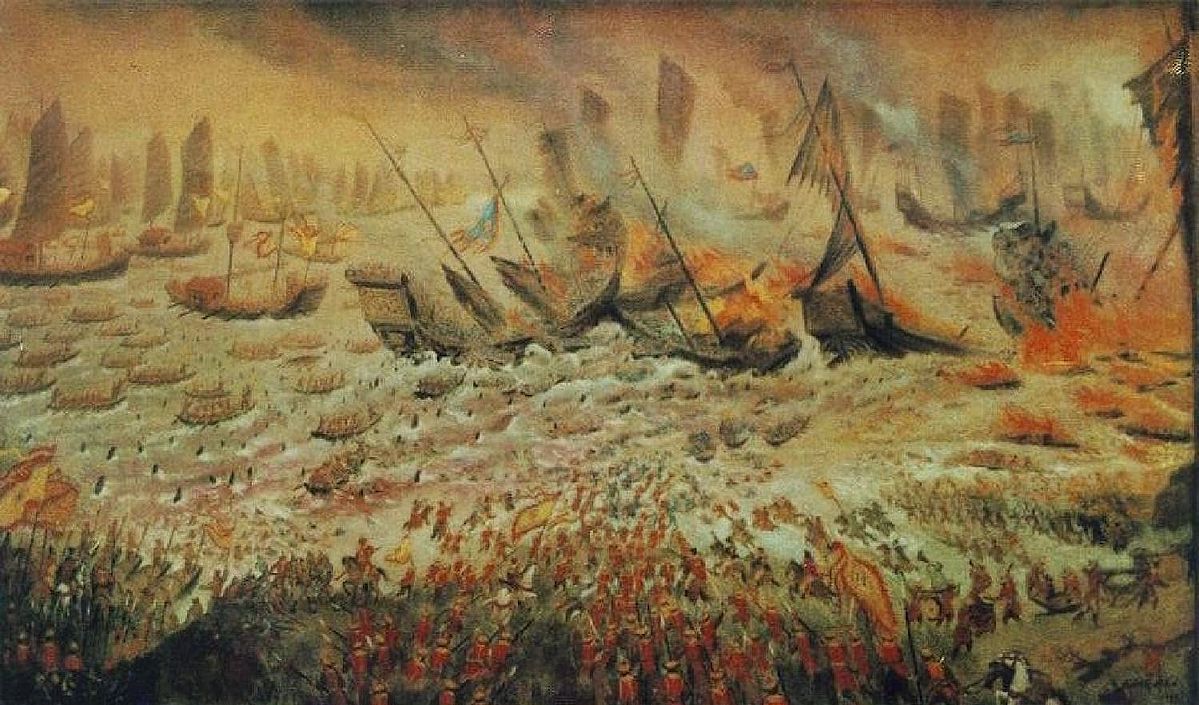
The Mongolians appeared uncivilised and barbaric to many other cultures, which made them appear more brutal and fearsome, because they were. Before being united by Genghis Khan, the Mongolians were simply fierce warring tribes, however, once unified under a powerful leader, this barbaric spirit became a great weapon. The savage ways they would slaughter their enemies, spread fear throughout their enemies. “The greatest joy for a man is to defeat his enemies, to drive them before him, to take all they possess, to see those they love in tears, to ride their horses, and to hold their wives and daughters in his arms.” Genghis Khan.
Terror Tactics
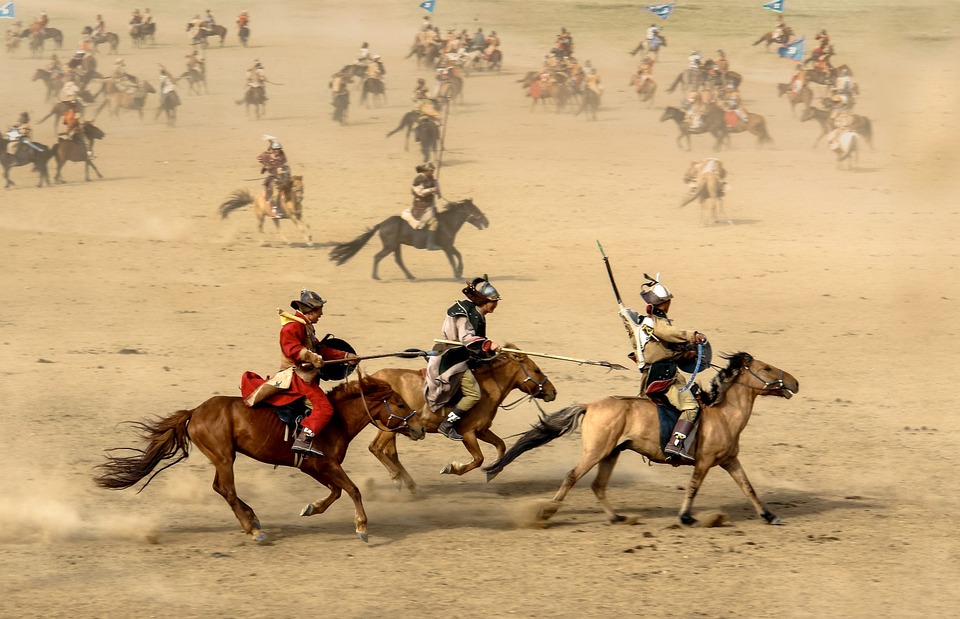
The Mongol were masterful at spreading fear and hate throughout Asia, people feared them, and therefore hated them. They would rape and pillage entire villages, and torture their victims for fun. Nobles would get it the worst. Spilling noble blood was considered a crime, so they simply crushed them to death, which took many hours. Mongols would literally dine on top of them, making merry to the sounds of their screams from underneath. The sounds of bodies squelching, and bones snapping didn’t faze them. But rumours of this execution method struck terror. Fear made them powerful, as people often chose to surrender and pay tribute rather than risk fighting them.

